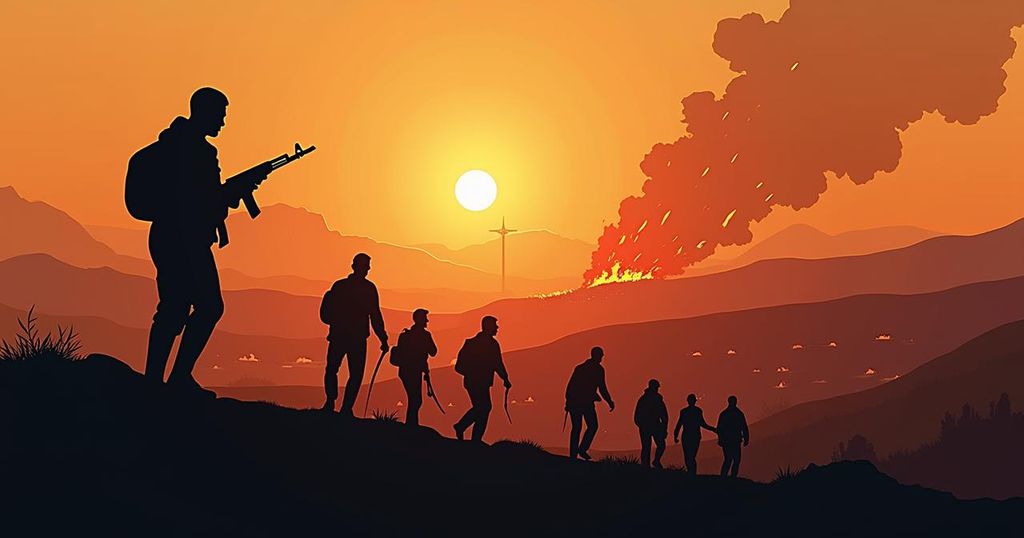Israel-Hezbollah Conflict Intensifies Amid Global Protests and Humanitarian Crises

Israel has escalated its bombardment in Lebanon, targeting both Hezbollah and Hamas, with significant protests erupting worldwide urging an end to violence on the anniversary of the war in Gaza. Thousands are fleeing affected areas in Lebanon, and the Israeli military reports interceptions of missiles from Lebanon amid continued attacks on Gaza, which has seen a death toll exceeding 41,000. Political figures are calling for international pressure on Israel to cease hostilities, while Iran’s involvement adds a layer of complexity to the ongoing strife.
Recent escalations in conflict between Israel and its adversaries, particularly Hezbollah, continue to unfold with increasing intensity. On October 5, 2024, powerful explosions resonated through southern Beirut as Israel intensified its bombardment, extending its military operations to target a Palestinian refugee camp in northern Lebanon for the first time. This expansion of military action has resulted in approximately 40,000 pro-Palestinian demonstrators convening across various major cities globally while thousands in Lebanon, including Palestinian refugees, evacuated from the escalating violence. Concurrently, Hezbollah faces significant challenges following airstrikes, leading to lost contact with top figures and heavy tolls on healthcare workers in the conflict zones. Furthermore, Israel’s military reported interceptions of projectiles from Lebanon, including surface-to-surface missiles. The conflict within Gaza remains devastating, with the Hamas-run Health Ministry reporting over 41,000 fatalities within the ongoing war involving Palestinian militants. On a political scale, Lebanon’s Prime Minister has urged international pressure for a ceasefire, emphasizing cooperation with U.S. and French diplomatic efforts. Meanwhile, Israel maintains its focus on strategic military strikes against Hamas and Hezbollah amid these complex international dynamics, highlighting a global response to the persistent violence, with protests calling for an end to bloodshed marking the anniversary of the conflict.
The current conflict, which marks its first anniversary in early October 2024, emanates from longstanding tensions between Israel and Palestinian groups, most notably Hamas. The situation has further escalated due to Hezbollah’s involvement as an ally of Hamas, thus broadening the conflict’s scope into Lebanon. Simultaneously, Iran’s influence as a supporter of these groups contributes to the ‘Axis of Resistance,’ which poses a formidable challenge to Israeli military operations. With the ongoing cycle of violence, international calls for ceasefires and humanitarian actions are intensifying, contrasting with the backdrop of U.S. support for Israel’s military pursuits.
In summary, the conflict between Israel and its adversaries, particularly Hezbollah, has intensified with devastating consequences for both military personnel and civilians. As protests against the violence surge globally, the need for urgent diplomatic interventions and humanitarian assistance becomes increasingly critical. The calls from leaders like Lebanon’s Prime Minister for a ceasefire amplify the urgency for a peaceful resolution to the protracted conflict that continues to affect countless lives in the region.
Original Source: www.thehindu.com








